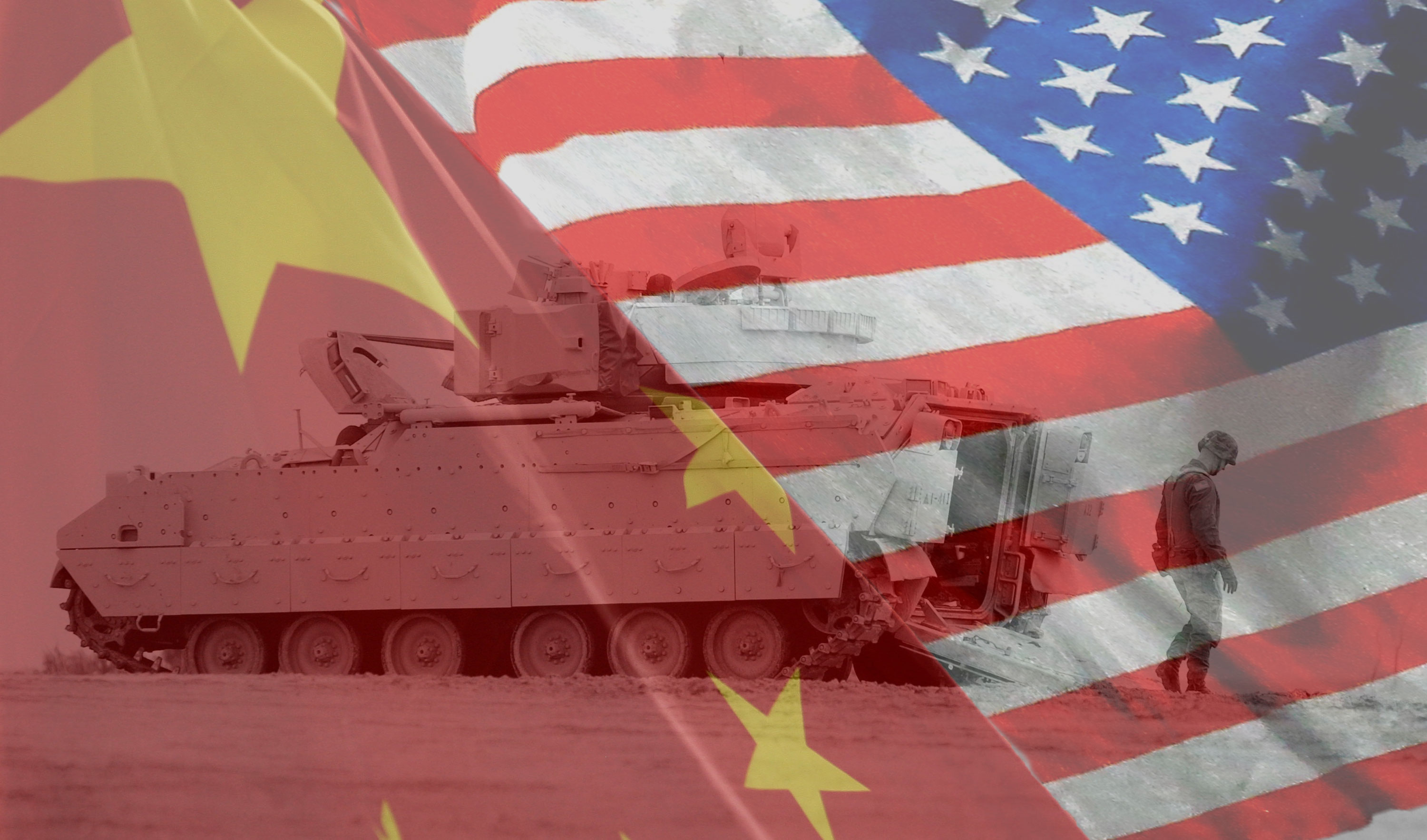A U.S.-China war is unthinkable. It also may be inevitable.
And it may be coming sooner than any of us think


A free daily email with the biggest news stories of the day – and the best features from TheWeek.com
You are now subscribed
Your newsletter sign-up was successful
It's easy for military strategists to be mistaken for warmongers. By simply considering the possibility that big wars are eventually inevitable, military strategists are automatically in a different class than the rest of us. For a military strategist, ruling out the prospect of war is a failure of the imagination, and a potentially dangerous one at that. These possibilities, even if they seem far-fatched, must be confronted.
And although few want to, we have to think about war with China. What's more, we have to think about war with China in a new way.
The narrative right now holds that China is expanding and we are scrambling — economically and politically. Because of this, we think, the likelihood of conflict between America and China is increasing — but not the likelihood of an actual war. We may well be wrong about that.
The Week
Escape your echo chamber. Get the facts behind the news, plus analysis from multiple perspectives.

Sign up for The Week's Free Newsletters
From our morning news briefing to a weekly Good News Newsletter, get the best of The Week delivered directly to your inbox.
From our morning news briefing to a weekly Good News Newsletter, get the best of The Week delivered directly to your inbox.
First, the economic tension: "Beijing's plans for a new multilateral Asian Infrastructure Investment Bank have put Washington on edge," notes Johns Hopkins China expert Ho-fung Hung. "More than 40 countries, including major United States allies in Europe, have signed up to join it despite the Obama administration's objections and warnings." (You can read more about China's development bank here.)
Then, the militarization and geopolitics: Obama's new Defense secretary, Ash Carter, is telegraphing a response to China's aggressive militarization of the South China Sea. "We and many other countries are deeply concerned about some of the activities China is undertaking," he recently warned. "Its opaque defense budget, its actions in cyberspace, and its behavior in places like the South China Sea raise a number of serious questions."
Because war with China is unthinkable for us, we see these issues and think managing the Chinese threat is more likely than a shooting war. But the paradox is that by ruling out the possibility that China is unmanageable, we are preparing ourselves to be caught unawares by war.
We see China the way we do — as a threat to be managed — because we're viewing China in too shallow a way. Even though our perspective is complex and well-informed, we probably spend too much time looking at China's maneuvers and quantifying its socioeconomic situation. Dig deeper. It's a real possibility that China is actually unmanageable.
A free daily email with the biggest news stories of the day – and the best features from TheWeek.com
When the U.S. stood to benefit hugely from growth fueled by China, most Americans — especially elites — felt good about delinking China's economic and political policy. Now that so many other countries feel the same way, it's becoming unnerving.
That's why China's militarism in the South China Sea is actually a bigger problem than it should be. Alone, a few unwelcome installations should not trigger a shooting war, as Henry Kissinger has explained. Alone, Chinese regional economic leadership is not a huge threat to the U.S. But the two together are another story. China's economic edge can work very well to soften up resistance to a subsequent wave of military expansionism. In this view, China's expanding presence in the South China Sea is just a prelude of what will happen after its neighbors become reliant on good economic relations. Rather than just a modest problem, it's a signal of a huge problem to come.
Of course, American reluctance to go to war with China is high, and will stay that way. But American concern over economic eclipse will remain high too, whatever the experts say, because American leverage over Chinese economic leadership is set to keep weakening. The likelihood is that our fear of decline will exceed our fear of defeat.
Or, to put it another way, we may be as unmanageable for the Chinese as they are for us. Only by taking this seemingly pessimistic possibility seriously can we invent a durable peace. But that is a lot to ask on both sides.
James Poulos is a contributing editor at National Affairs and the author of The Art of Being Free, out January 17 from St. Martin's Press. He has written on freedom and the politics of the future for publications ranging from The Federalist to Foreign Policy and from Good to Vice. He fronts the band Night Years in Los Angeles, where he lives with his son.
-
 Political cartoons for February 21
Political cartoons for February 21Cartoons Saturday’s political cartoons include consequences, secrets, and more
-
 Crisis in Cuba: a ‘golden opportunity’ for Washington?
Crisis in Cuba: a ‘golden opportunity’ for Washington?Talking Point The Trump administration is applying the pressure, and with Latin America swinging to the right, Havana is becoming more ‘politically isolated’
-
 5 thoroughly redacted cartoons about Pam Bondi protecting predators
5 thoroughly redacted cartoons about Pam Bondi protecting predatorsCartoons Artists take on the real victim, types of protection, and more
